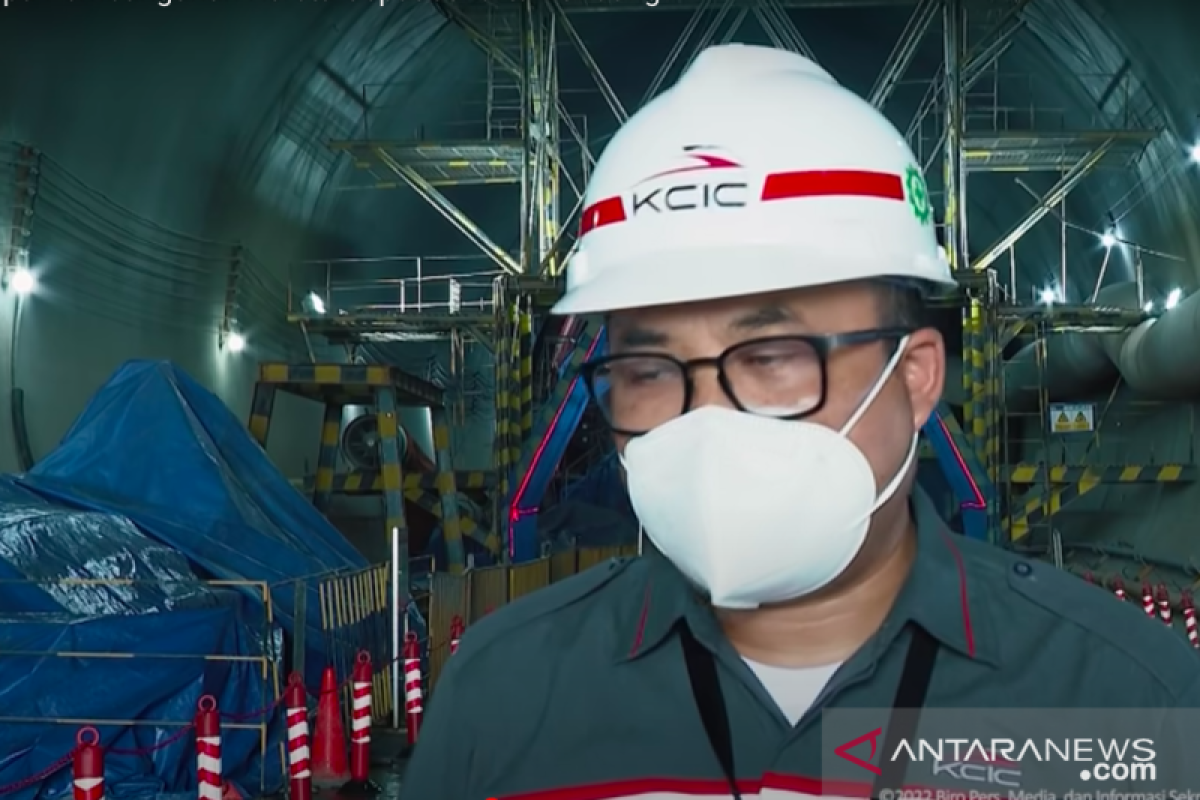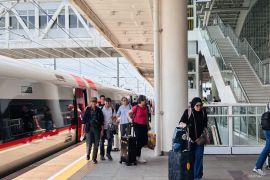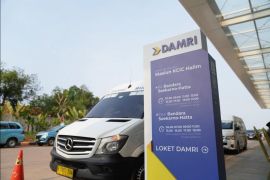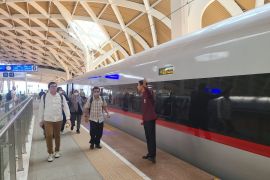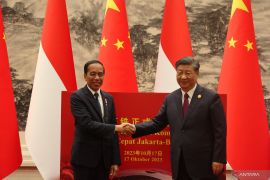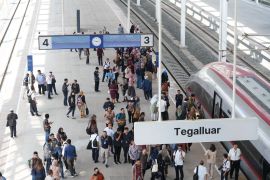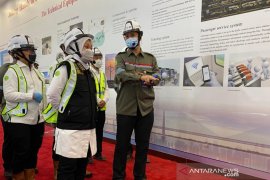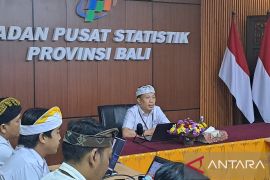The collaboration between tunnel experts from China and the ITB (Bandung Institute of Technology) can complete this project, including tunnel 2Jakarta (ANTARA) - The difficulties in construction encountered at tunnel 2 of the Jakarta-Bandung high-speed rail project (KCJB) have relatively been solved, President Director of PT Kereta Cepat Indonesia China (KCIC) Dwiyana Slamet Riyadi stated.
"The collaboration between tunnel experts from China and the ITB (Bandung Institute of Technology) can complete this project, including tunnel 2," Riyadi noted in the Presidential Secretariat's YouTube channel here on Tuesday.
As the progress in work has returned to normal, the overall progress in the construction of the Jakarta-Bandung high-speed rail has reached about 70 percent, according to Riyadi.
Related news: Jakarta-Bandung high-speed railway progresses by 79.9 percent: Jokowi
Earlier, the work on tunnel 2 of KCJB, located in Purwakarta, West Java, was constrained owing to clay shale at the construction site.
Clay shale is categorized as extreme because water and air exposure can degrade its land carrying capacity by 80 percent.
"This clay shale land quickly swells. If it is exposed to water and air, its land carrying capacity decreases by almost 80 percent, thereby causing avalanches," Riyadi stated.
On account of the problem, the KCIC undertook some special handling measures to fortify the construction and the tunnel surface in addition to roping in some tunnel experts from China.
Related news: Pandjaitan reviews high-speed railway project in Purwakarta
"We brought in some experts from China, such as grouting experts. On the tunnel surface, we conduct concrete grouting against avalanches," Riyadi explained.
Meanwhile, President Joko Widodo (Jokowi) on Monday (January 17, 2022) inspected the tunnel 2 of KCJB. Jokowi noted that construction of the KCJB project has reached 79.9-percent completion and is targeted to become operational by June 2023.
The president is optimistic that the Jakarta-Bandung high-speed train would reduce traffic congestion in the two cities.
Furthermore, the Jakarta-Bandung high-speed train will use the latest generation of CR400AF train cars. The project has a track length of 142.3 kilometers from Jakarta to Bandung.
Related news: Qualified HR to drive Indonesia to compete in digital industry
Related news: Jakarta-Bandung high-speed railway progresses by 79.9 percent: Jokowi
Translator: Indra P, Kenzu T
Editor: Fardah Assegaf
Copyright © ANTARA 2022
